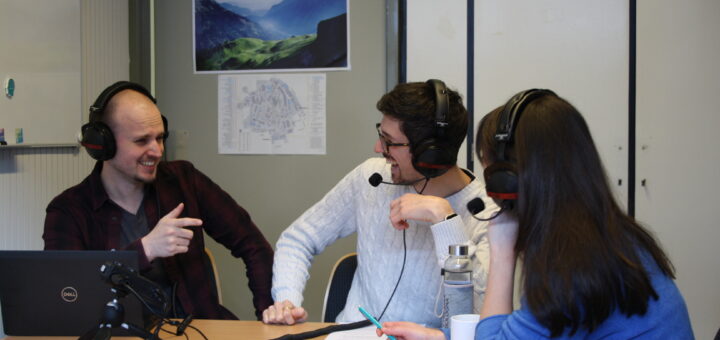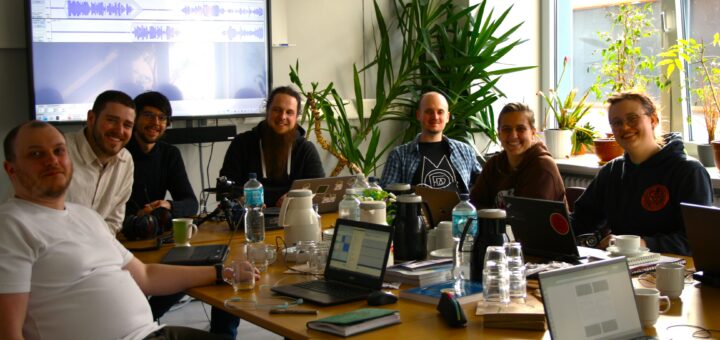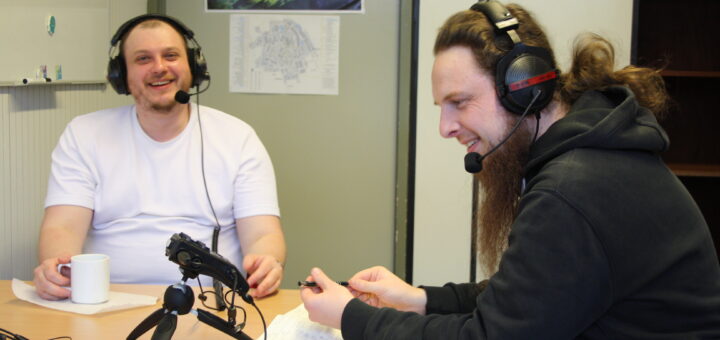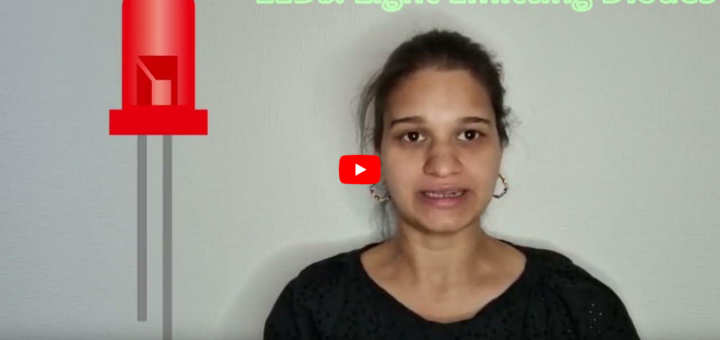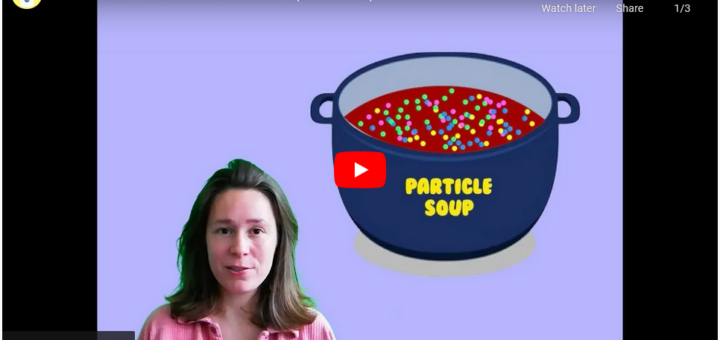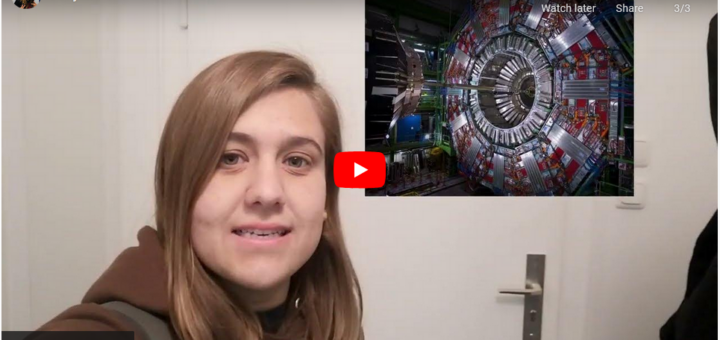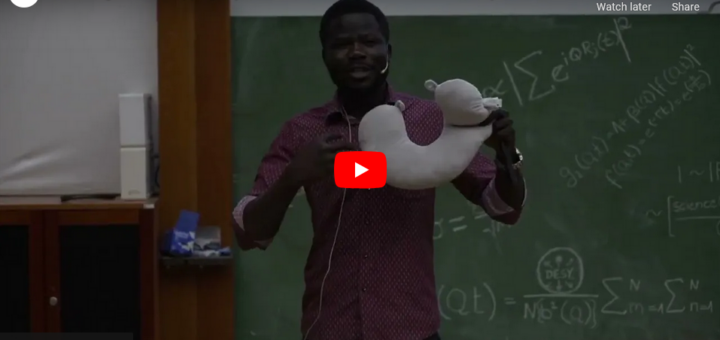Evan and the Particle Physicists
The Large Hadron Collider is the highest energy particle collider ever built, smashing protons together at record energies. But how would a physicist looking at data from these collisions make a breakthrough discovery, like a new particle? The answer might not be what you expect!
After hearing a seemingly simple question from his dad, Evan started thinking about how some aspects of particle physics at the LHC can be misunderstood. In crafting a thorough answer to this brief question, he walks us through the basic strategy behind measurements at a proton-proton collider, explaining why we often need millions of data points to identify the fundamental constituents of the universe, and how quantum physics can be random in a precise and predictable way. After giving his own personal explanation, he is joined by his colleagues Aliya and Federico for a more informal conversation. Together they discuss the realities of working on particle physics, what excites them about their research, and what future directions the field can take.
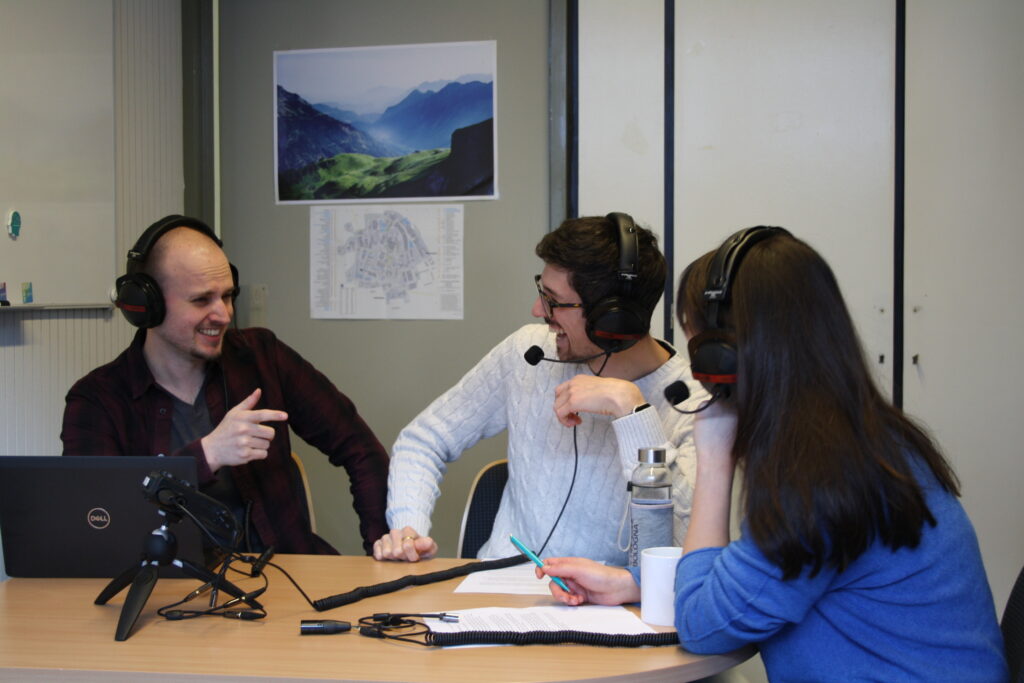
Evan Ranken is a postdoctoral researcher at DESY who studies top quarks as part of the CMS collaboration. He grew up in Bernalillo, New Mexico (USA), where he enjoyed 310 days of sunshine per year and the best chile peppers in the world–but he won’t brag about that in this podcast. From his hometown, he moved to a series of increasingly rainy locales, culminating in Hamburg.
Aliya Nigamova is a postdoctoral researcher working jointly with the University of Hamburg and DESY. In addition to her research focus on Higgs physics in CMS, she also contributes to the development and management of analysis software used by the wider collaboration. She is the proud owner of Löwy, a golden retriever who may be the most universally beloved member of the DESY CMS group.
Federico Vazzoler is a CMS experimental physicist with a passion for particle physics modeling and phenomenology. He obtained his PhD at the University of Trieste with a thesis on multi-boson measurements, and is currently a research fellow based at DESY. His recent work focuses on precision measurements of fundamental parameters in the standard model of particle physics, such as the strong coupling constant, the W boson mass, and the electroweak mixing angle.

